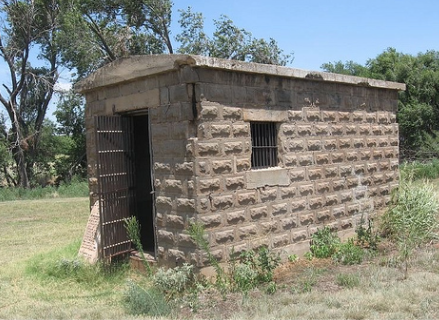Criminal Record Expungement in Oklahoma
Seal your record under Oklahoma law and take the next step toward a fresh start.
Everyone makes mistakes, but your past doesn’t have to follow you forever. Oklahoma law allows certain misdemeanor records to be sealed so you can apply for jobs, housing, or school without old charges holding you back. Expungement gives you the chance to move forward with a clean slate.
Who Qualifies
You may qualify to expunge a misdemeanor if one of these applies under 22 O.S. § 18:
Deferred sentence (misdemeanor) dismissed and 1 year has passed. No pending charges. No felony convictions.
Misdemeanor conviction with fine only ≤ $500. No jail and no suspended sentence. Fine fully paid.
Misdemeanor conviction with jail/suspended sentence or fine > $500 and 5 years have passed since the end of your last misdemeanor sentence. No pending charges. No felony convictions.
Helpful note: If several charges came from the same incident, they are treated as one for eligibility.
Timeline
Document prep: after you provide details, I prepare your packet and instructions
Filing → Hearing: courts often set hearings 30–60+ days out (varies by county)
After the order: allow time for agencies to seal records once they receive the signed order and any required processing fees
- Timing is very dependent on your judge’s hearing schedule and availability.
What You Need To Get Started
Case number(s) and county
Arresting agency and final outcome (deferred, conviction, fine, etc.)
Dates that show you meet the time rules (1 year or 5 years, if required)
Proof you completed everything (fines paid, classes, probation)
A government ID and your current mailing address
(Optional but helpful) Your OSBI criminal history report to confirm what shows

Oklahoma’s New “Clean Slate” Law
Beginning in August 2025, Oklahoma will begin rolling out what’s called the Clean Slate Expungement process. This means that certain old criminal records will be sealed automatically by the courts, without the person having to file paperwork or pay filing fees.
Here’s what that means in practice:
Who it helps:
People with minor records that fall into the “clean slate eligible” categories, such as:Arrests where no charges were ever filed
Charges that were dismissed and not refiled
Certain misdemeanor convictions where enough time has passed and no new charges are pending
Some lower-level nonviolent felonies that were later reclassified as misdemeanors
How it works:
The Oklahoma State Bureau of Investigation (OSBI) will run monthly checks of its database and create a list of eligible cases. That list is sent to the prosecutor and arresting agency. If no one objects within 45 days, the case goes to the court for an automatic sealing order.Limits to know about:
Not all misdemeanors or felonies are included. Violent crimes and sex offenses do not qualify.
Agencies can object if restitution hasn’t been paid or if they believe the person is still involved in criminal activity.
Full implementation depends on funding and building the technology to handle automatic sealing, so even though the law takes effect in 2025, it may take additional time before large numbers of records are sealed automatically.
Why you might not want to wait:
If you need your record cleared for a job, housing, or school application soon, filing a petition-based expungement is still the fastest way. Clean Slate will eventually help thousands of Oklahomans, but it won’t cover everyone—and it won’t happen overnight.
Felony Expungement in Oklahoma
While misdemeanors are the most common records people want to clear, Oklahoma law also allows certain nonviolent felonies to be expunged under 22 O.S. § 18. The rules are stricter, but it is possible.
Who May Qualify
Single nonviolent felony conviction – You have finished your sentence, have not been convicted of another felony, have not had a misdemeanor in the last 7 years, and at least 5 years have passed since completing your sentence.
Up to two nonviolent felony convictions – Neither felony can be violent or require sex offender registration, and at least 10 years have passed since completing your last sentence.
Deferred or delayed felony sentence (nonviolent) – If you successfully completed probation on a deferred or delayed felony charge (not violent or sex-related), and at least 5 years have passed since the case was dismissed, you may qualify.
Reclassified felonies – If your felony was later reclassified as a misdemeanor under Oklahoma law, you may seek expungement once 30 days have passed since completing your sentence and all restitution and treatment programs are complete.
What to Expect
The felony expungement process follows the same petition steps as a misdemeanor:
Petition is filed in the county where the case was handled.
Notice is given to the prosecutor, arresting agency, and OSBI.
A hearing is set, and the judge weighs privacy vs. public interest.
If approved, the order is signed and agencies are required to seal the records.
You Need to Know
Violent crimes and crimes requiring sex offender registration are not eligible.
The waiting periods are longer than misdemeanors, so timing is crucial.
Once sealed, a felony expungement gives the same protections as a misdemeanor expungement — legally, you can say the record does not exist.
What If the DA or OSBI Objects?
When you file for expungement, the District Attorney, the arresting agency, and OSBI all receive notice of your petition. Under Oklahoma law, they have the right to object within 30 days of being notified.
Why objections happen
The agency believes you filed too early (the waiting period hasn’t passed).
Restitution, fines, or treatment programs are not fully complete.
The DA believes the public interest outweighs sealing the record.
OSBI believes the case doesn’t qualify under the statute.
What happens if there’s an objection
The court will still hold a hearing.
The DA or OSBI explains their reasons.
The judge makes the final decision using the balancing test in 22 O.S. § 19(G): weighing your privacy and future opportunities against the public’s interest in keeping the record open.
What this means for you
Most misdemeanor expungements face no objection if you clearly meet the requirements. Felony expungements are more likely to draw scrutiny. If there is an objection, you may need an attorney to represent you in court.

Oklahoma Expungements: Misdemeanor and Felony Compared
Misdemeanor Expungements (Key Points)
Eligibility
Deferred misdemeanor dismissed → wait 1 year (22 O.S. § 18(A)(8))
Conviction, fine ≤ $500, no jail → no waiting period once fine is paid (22 O.S. § 18(A)(10))
Conviction with jail, suspended sentence, or fine > $500 → wait 5 years after sentence ends (22 O.S. § 18(A)(11))
Other rules
Must have no pending charges
Must have no felony convictions
Offenses from the same incident count as one case (22 O.S. § 18(D))
Process
Petition → file in county → 30-day notice → hearing → judge order → OSBI sealing ($150 fee)Result
Records sealed to the public, but still available to law enforcement in future cases (22 O.S. § 18(E)).
Felony Expungements (Key Points)
Eligibility
One nonviolent felony → wait 5 years after sentence ends, no other felonies or recent misdemeanors (22 O.S. § 18(A)(12))
Up to two nonviolent felonies → wait 10 years (22 O.S. § 18(A)(13))
Nonviolent deferred felony dismissed → wait 5 years (22 O.S. § 18(A)(9), (14))
Felony later reclassified as a misdemeanor → wait 30 days if restitution/treatment done (22 O.S. § 18(A)(16))
Other rules
Violent crimes & sex offenses cannot be expunged
DA or OSBI objections are more common
Expunged felonies may still be used to prove priors in later prosecutions (22 O.S. § 18(E))
Process
Same as misdemeanors: Petition → file → notice → hearing → judge order → OSBI sealing ($150 fee)Result
Sealed to the public; some records still available to law enforcement and prosecutors. Appeals by DA/OSBI are possible (§ 19(G)).
Frequently Asked Questions
Will expungement erase my record everywhere?
Expungement seals the record. For most jobs, housing, and schools, you can legally say it didn’t happen. Some law-enforcement access can remain depending on the category under § 18.
Do I have to tell employers about a sealed case?
Once sealed, you may answer “no” when asked about that case, unless a specific law says otherwise.
Can I expunge more than one case at once?
If you have charges in more than one county, you will have to file a case in each county. For charges in a single county, multiple eligible offenses may be considered under a single petition if they would qualify sequentially (22 O.S. § 19(F)). I’ll show you how to present them.
Do you go to court with me?
No. I prepare documents and instructions. You handle filing and the hearing.
Can a felony ever be expunged in Oklahoma?
Yes, some nonviolent felonies can be expunged under 22 O.S. § 18, but the waiting period is longer. For a single nonviolent felony, you usually must wait at least 5 years after completing your sentence. If you have up to two nonviolent felonies, the wait can be 10 years. Violent crimes and sex offenses are not eligible.
What happens if I have both a felony and a misdemeanor on my record?
The court will look at your entire record when deciding eligibility. If you qualify under the felony rules and meet the waiting period, you may be able to clear both the felony and the misdemeanor at the same time. If the felony does not qualify, you may still be able to expunge the misdemeanor separately.
Will expungement clear my record from background check companies?
Once sealed, state and court records should not appear on new background checks. However, private companies that bought your record before it was sealed may still have outdated information. Most reputable background-check companies update their databases regularly, but you may need to request corrections if an old record continues to show.
Disclaimer: Hometown Legal Forms is not a law firm and does not provide legal advice. All information, forms, and resources on this website are based on Oklahoma law and are for general educational purposes only. Using this site does not create an attorney-client relationship. You are responsible for ensuring that any forms or instructions meet your specific needs and comply with all applicable laws. If you need legal advice, please consult with a licensed attorney.

